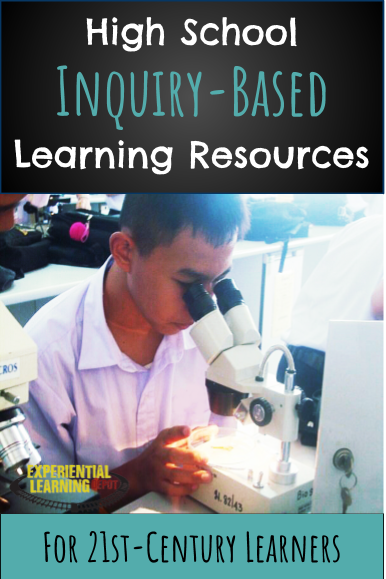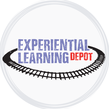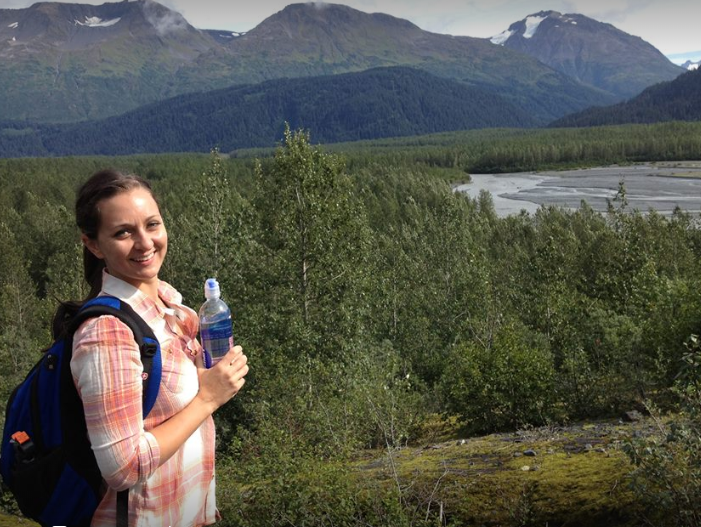|
Experiential learning resources for the innovative educator
In short, inquiry-based learning is a student-centered instructional method that promotes learning through discovery. Rather than have "correct answers" delivered directly from teacher to student, the learner explores the world around them, asks questions, and investigates. Inquiry-based learning exists on a spectrum from teacher-directed to entirely student-directed. If you have been reading my blog for a while, you know which end of the spectrum I stick to. If you're new here, I believe student-directed learning is where it's at! An example of teacher-centered inquiry would be a recipe science lab where students follow prepared instructions and the outcome is predictable and uniform. Student-directed inquiry-based learning, on the other hand (open inquiry) gives learners the freedom to make choices in question, experimental design, etc. The student leads the experiment, they do not follow one created for them. In my opinion, teacher-centered should only be a starting point, not the norm. It's an okay place for beginners to start, but in time, learners should gain the confidence and skills to direct their own inquiry learning experiences. When the activity is student-led, learners gain content knowledge in addition to a hefty portfolio of skills essential for life in the 21st-century. The role of the educator changes in student-directed inquiry (or anything child-led for that matter), from director of learning to facilitator of learning. You have an important job, which is to scaffold and guide. Use the questions on the graphic below to encourage students to come to conclusions on their own. There are so many other questions you can use to scaffold. The idea is to help learners lead their own quest for knowledge. Check out the list of inquiry-based learning resources from Experiential Learning Depot below, and use the questions in the graphic to help with implementation. You can also look back at some of my other blog posts on inquiry-based learning for more implementation tips and inquiry details. Inquiry-Based Learning Resources for 21st-Century Learners**Note: The resources below were designed with high school students in mind.*** 1. Inquiry Bingo Inquiry bingo is basically trivia, but the questions are obscure; they cannot be answered with one Google Search. It's an exciting way to practice a plethora of 21st-century skills. Students have to think outside of the box, dig in obscure places for information, and potentially communicate with experts. They also gain a portfolio of resources that they may not have been aware of prior to this experience. Click on the photos below for links to inquiry bingo. 2) Ocean and Climate Inquiry Stations How does climate work? There are so many variables at play when it comes to what influences climate, making this topic fairly complex. It would be difficult to make complete sense of the role that the ocean plays in global climate if conveyed through lecture. This resource encourages learners to make discoveries on their own by connecting their experiences, observations, and background knowledge to real-world scenarios. This particular resource is a series of mapping stations. Click the photo to get to this resource. This activity is also included in a bigger bundle on the science of climate change. 3. Scientific Open Inquiry: Scientific open inquiry is experimentation that is entirely led by the child. The student asks the question, makes a prediction, designs an experiment, and conducts the experiment. You can start with a specific topic or theme and let students develop questions and experiments around that theme, or you can leave it completely open-ended, similar to a science fair project.
STEM, project-based learning, problem-based learning, and maker education are all forms of inquiry as well. Students start with a driving question and interview experts, collaborate with community members, line up authentic learning experiences, conduct experiments, and so on to answer that question. Find these resources at Experiential Learning Depot on TpT.
You also don't have to be a science teacher to do inquiry-based learning with your students. Most of the resources listed above are scientific in nature because I am a science teacher. But inquiry crosses-disciplines. It doesn't matter if your students are learning about climate or economics or painting; if they are exploring and examining the world by asking their own questions and coming to conclusions on their own, and you are not giving out "correct answers" then it is inquiry, regardless of the topic. This list is always growing, so check back with Experiential Learning Depot on TpT occasionally. I will also try to keep this post updated as more resources are added to my store. For free tips and resources on inquiry-based learning continue to follow along right here. Follow Experiential Learning Depot on TpT, Pinterest, Instagram, and Facebook for more on experiential education. Observe. Question. Explore. Share.
1 Comment
|
Blog IntentTo provide innovative educational resources for educators, parents, and students, that go beyond lecture and worksheets. AuthorSara Segar, experiential life-science educator and advisor, curriculum writer, and mother of two. Categories
All
|















 RSS Feed
RSS Feed